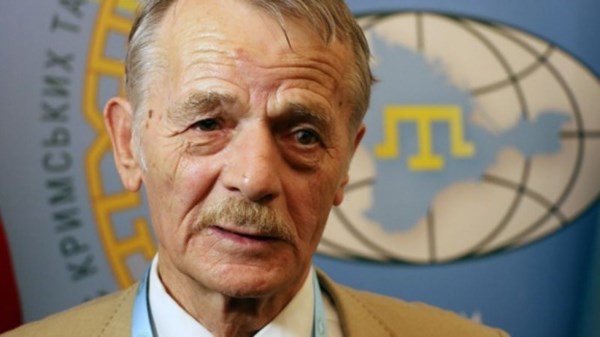Crimean Tatar leader: Sanctions against Russia should remain in place until they completely withdraw from the Crimea
The leader of the Crimean Tatar people, Mustafa Dzhemilev expressed hope that the European Union would continue a consistent policy towards the Crimea and that the sanctions would remain in effect until it is completely de-occupied.
"Sanctions are the main thing for “de-occupation.” The European Union’s decision is very motivating because in the Crimea, repression has intensified against citizens who remain faithful to their state. I hope that these sanctions will continue until the complete liberation of the Crimea from the occupiers,” Dzhemilev stated in in a commentary on Krym Realii news web site.
He hoped that sanctions against the Crimea would intensify. At a meeting of EU foreign ministers on June 19 in Luxembourg, the Council of the European Union extended sanctions for another year on Russian-annexed Crimea. The decision was coordinated by the ambassadors of the European Union on June 6.
Restrictions include the import prohibition of any Crimean goods to the EU, the prohibition of European investments in the Crimea, particularly the acquisition of real estate there, financing of business and provision of services. The European ships are also prohibited from entering Crimean ports except in emergency situations.
Russia condemned the EU sanctions against the Crimea. The Press Secretary for the Russian President, Dmitry Peskov said that the Kremlin considers sanctions against Russia as "illegitimate."
The head of the Kremlin-controlled Committee for Multiculturalism and Deported Citizens of the annexed Crimea, Zaur Smirnov believes that the Crimeans do not fear Western sanctions or their duration.
Sanctions were introduced in 2014 in response to the Russian annexation of the Ukrainian peninsula. Since then, they have been extended and expanded several times. The EU's economic sanctions, which affect the Russian banking and energy sector, are likely to be discussed at a meeting of EU leaders in Brussels on June 22.
EU diplomats said in a discussion on Radio Liberty that these measures might be extended for another six months at the end of June.
Starting from 2014, the West introduced sanctions in several stages in connection with the destabilization of Ukraine and Russia's annexation of the Crimea. Shortly after, several Donbas related packages of sanctions followed.
Russian individuals and legal entities, as well as individuals and institutions from the Donbas, Crimea and representatives of the former leadership of Ukraine were placed on the sanctions list.
Additionally, sanctions have been imposed on some sectors of the Russian economy.
